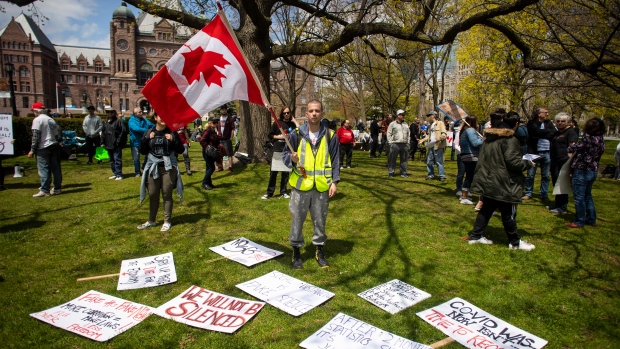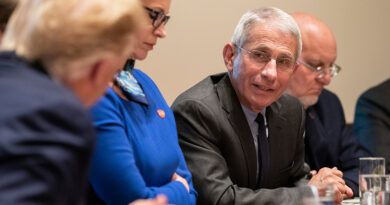Quebec microbiologists worried about conspiracy theories affecting real science

MONTREAL — The Quebec Association of Microbiologists is concerned about the spread of false information online regarding COVID-19.
The organization said it has received about 100 complaints about people saying they’re scientists, but who are spreading misinformation about the virus on websites and social media.
“This one says that wearing a mask and distancing from one another is the best way to have a second wave, because of the lack of collective immunity,” said Quebec Association of Microbiologists president Christian Jacob.
Microbiologists have been fielding calls from people saying they have science degrees and are spreading their own theories online.
“Mainly on masks, but we’ve seen a lot on vaccines, pretty much anything that has to do with the pandemic,” said Jacob. “Even the existence of the virus is put into question by some people.”
Jacob is concerned that false information is affecting his industry.
“There’s a great deal of disbelief regarding science as a general thing, not only in microbiology but as a whole,” he said. “Often, we see also someone taking a headline that is derived from a paper, and they have very big claims that are only derived from this paper. Generally, in science we wait to have an accumulation of science before deriving some strong conclusions. So I don’t like seeing the fact that science is being dragged into the mud.”
Anti-mask protests have sprung up in Quebec and elsewhere in North America, as governments enact laws requiring mask-wearing.
A central argument of the conspiracy theorist is that there is no point of wearing a mask if you’re not sick.
Infectious disease specialist Dr. Matthew Oughton said the unknown information about the virus has created fertile ground for spreading information based on rumours or half-truths.
“It’s a bit like the wild west out there in terms of trying to assess the quality of the information,” said Oughton.
For example, the Quebec government did not recommend wearing masks in March to prevent a possible shortage of supplies, but as the virus evolved, so did the rules to the point where masks are now mandatory in public indoor spaces.
Some experts have criticized authorities for not doing a better job of explaining why the rules changed because it was seen by some as a flip flop fueling mistrust.
“I think it behooves our authorities to explain this in a language that’s accessible to the population if there’s changes then spend the time to explain why these changes are coming about, what it is that we know now that we didn’t know before,” said Oughton. “I think if there was more focus put on that there’d be less confusion.”
*** This article has been archived for your research. The original version from CTV News Montreal can be found here ***


